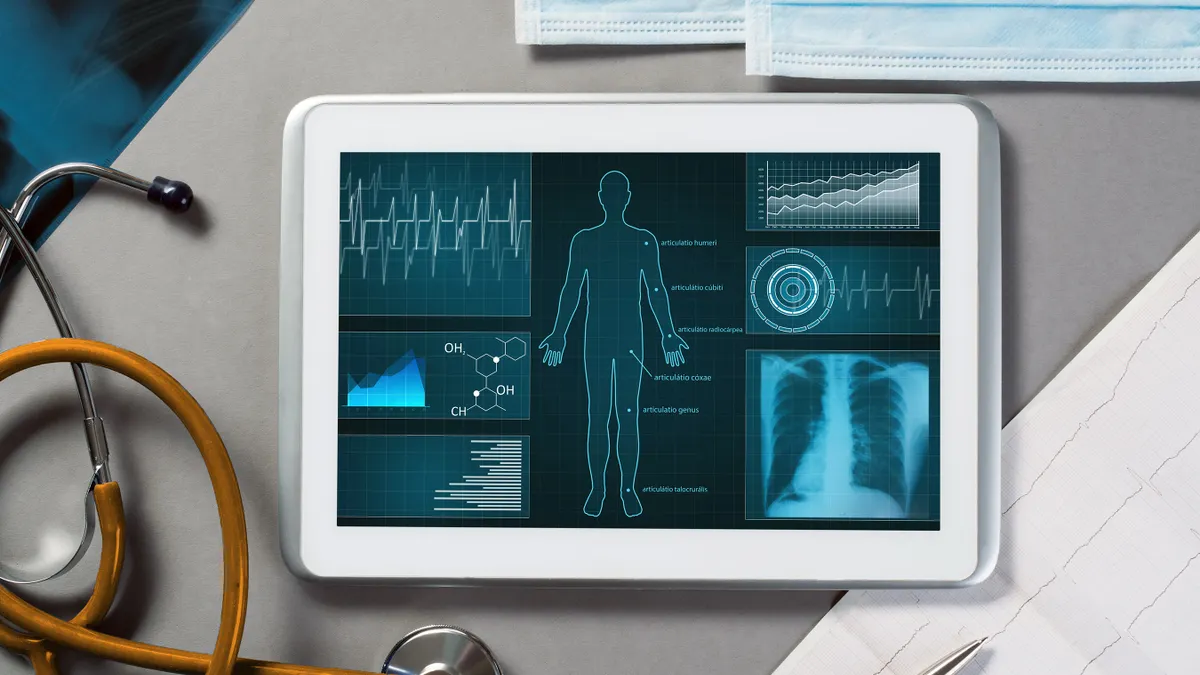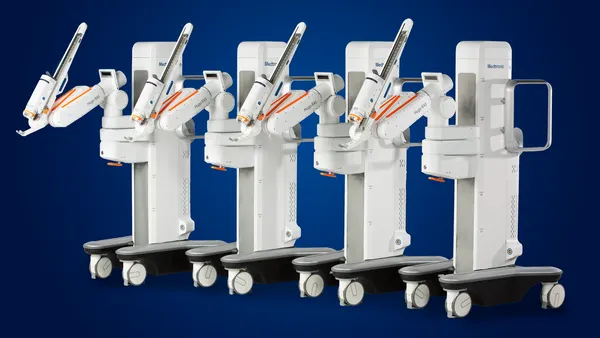The digital health industry has had its share of hype over the years. Remember when fitness trackers were the next greatest thing, and billions of dollars were flooding through venture capitalists into new digital health startups that were going to make us all eat better and exercise more? Well, we know how that turned out: Fitbit recently announced its seventh consecutive quarter of year-over-year revenue declines as well as several new partnerships designed to bake their wearables into more comprehensive health management programs. It turns out that it takes a lot more than a clever device to change behavior.
Today we're in a different place with respect to digital health. Investment dollars have moved away from fitness trackers to more comprehensive disease management solutions. Now the digital health space includes companies like Livongo, which combines a digital diabetes disease management program with glucose meters and test strips to improve outcomes, or digital therapeutics companies like Pear Therapeutics, whose FDA-approved therapy for substance abuse disorder, reSET®, is 100% digital and achieves better results than treatment as usual.
Thousands of pilot programs across the industry are beginning to show real results that hold the promise for improving quality and decreasing costs. One of the most significant challenges now in the digital health industry is how to go from a pilot to scale. Digital health startups are realizing that it's not that easy to get the U.S. healthcare system to scale an innovative new technology.
Of course, the old medtech guy in me has to smile when I think about that. Any seasoned medtech executive who has tried to launch a new technology without reimbursement would have told you the same thing. One could argue that medtech is the original digital health. In fact, it was the medical device and diagnostics industry that pioneered incorporating software into medical devices, before we even had broad-based use of EMRs.
We're at a time now when medtech needs to jump directly onto the digital health bandwagon. There's real value to be gained by driving the adoption of new digital health solutions, and who better to lead that charge than the industry that has been driving the adoption of new medical technology for years?
I recently attended AdvaMed’s Digital Medtech Conference, and the level of excitement around digital health was palpable. Traditional industry leaders were joined by digital health startups and others to discuss the various opportunities and challenges associated with digital and connected health in medtech, and taking new solutions to scale.
At ZS, we focus on commercial and go-to-market strategy, so with this in mind, I believe that there are four opportunities for medtech companies to transform how they go to market by leveraging digital health:
- Leverage digital solutions for a services transformation. Digital health solutions may be the critical enabler that makes comprehensive, patient-centered disease management a reality. The medtech industry has a great opportunity to move upstream into disease management with cost-effective digital tools and to shift from a device or equipment sale to one based on services.
- Become more consumer-centric. Individuals are getting more involved in their own healthcare decisions, and that includes procedures that involve the use of medical devices. The industry needs to start thinking about them as consumers who make their own informed decisions, rather than patients who blindly follow their doctors' orders. Reaching them has typically been an afterthought for medtech, but digital health tools make getting to them and staying engaged with them easier and more cost-effective.
- Transform the revenue model. Connected devices allow a manufacturer to transform its revenue model from a one-time sale to an ongoing revenue stream by tracking the usage of each device, allowing the company to charge the customer per-use. I'm an advisor for a startup that helps medical device companies manage its software on distributed devices securely and effectively. A customer of that company was able to move from charging a large lump sum for a capital sale to a payment model based on use, which is more attractive to customers and generates more predictable revenue for the manufacturer.
- Leverage digital and connected health data as a strategic asset. Many medtech companies have access to a wealth of new data enabled by digital health technologies. Leveraging this data for research or real-world-evidence studies, as well as getting a much deeper understanding of the patient, is possible. Data is a great opportunity.
It truly is an exciting time to think about how digital health solutions can transform healthcare. There's no reason that the medtech industry can’t help lead the change and, like it’s always done, lead the industry to drive the adoption of innovative new medical technology.
 Pete Masloski is a principal in ZS’s Evanston, Ill., office and is the leader of ZS’s digital and connected health practice. He has extensive experience helping clients improve the effectiveness of their sales and marketing efforts and has worked with clients across the healthcare ecosystem, from pharmaceutical and medical devices to healthcare providers and digital health tech startups.
Pete Masloski is a principal in ZS’s Evanston, Ill., office and is the leader of ZS’s digital and connected health practice. He has extensive experience helping clients improve the effectiveness of their sales and marketing efforts and has worked with clients across the healthcare ecosystem, from pharmaceutical and medical devices to healthcare providers and digital health tech startups.
Pete holds a B.S.E. in chemical engineering from Princeton University and an MBA with distinction from Northwestern University’s Kellogg Graduate School of Management.










